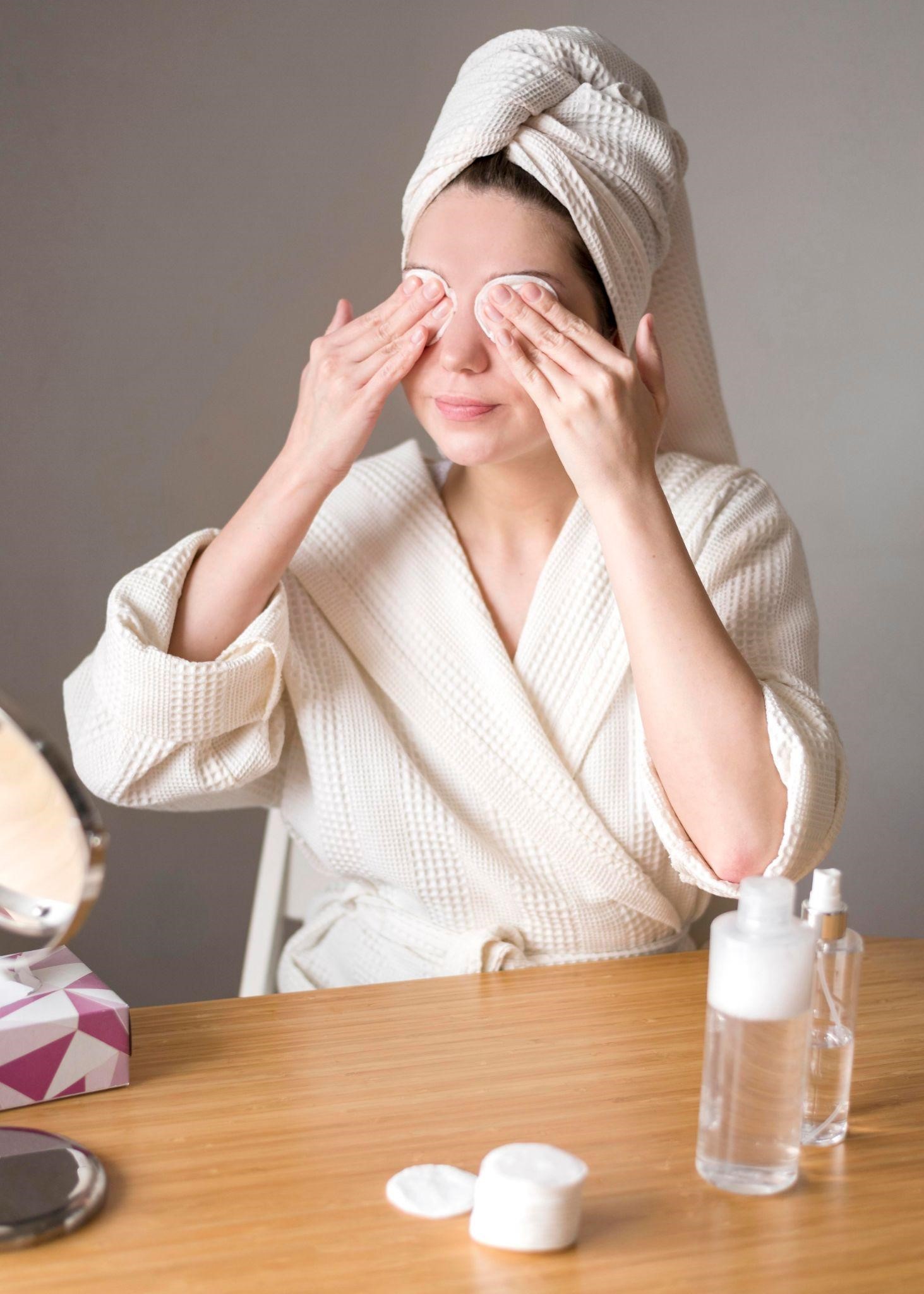
Rosacea is a persistent skin condition that typically affects the face, particularly the central part. It’s characterized by redness, visible blood vessels, and often, small, red, pus-filled bumps. The signs and symptoms may flare up for weeks to months and then diminish for a while. It may be mistaken for acne, other skin problems or natural ruddiness.
The cause of rosacea is unknown, but it could involve a combination of hereditary and environmental factors. Certain things are known to trigger flare-ups in most people, including consuming hot drinks and spicy foods, alcohol, temperature extremes, sunlight or wind, emotions, exercise, and certain cosmetics.
Understanding the Importance of Hydration for Rosacea
Hydration is an essential part of any skincare routine, and when it comes to managing rosacea, it is even more critical. The outermost layer of the skin, known as the skin barrier, is responsible for keeping harmful substances out of the body and locking moisture in. When we talk about hydration, we’re referring to the water content within our skin cells.
People with rosacea often have a compromised skin barrier, leading to dry, irritated, and sensitive skin. This is where the importance of hydration comes in. By maintaining adequate hydration, we can help strengthen our skin barrier, reduce inflammation, and ultimately, manage our rosacea symptoms more effectively.
Connection between Rosacea and Skin Dehydration
The link between rosacea and skin dehydration is more than just a coincidence. Research shows that people with rosacea have a higher prevalence of impaired skin barrier function. This means their skin is more prone to dehydration, which can exacerbate rosacea symptoms.
Dehydrated skin is skin that lacks water. This can happen regardless of how much oil your skin has; even oily skin can be dehydrated. When your skin is dehydrated, it creates more oil to make up for the missing water. This can lead to a vicious cycle of your skin overcompensating, leading to more oil, which can trigger rosacea flare-ups.
Benefits of Proper Hydration for Rosacea
Proper hydration benefits rosacea-prone skin in several ways. First, a well-hydrated skin barrier can better protect against irritants and allergens that may trigger rosacea flare-ups. Secondly, hydrated skin is more plump and resilient, which can help reduce the appearance of redness and inflammation associated with rosacea.
Moreover, hydration can improve the effectiveness of your other rosacea treatments. Many topical rosacea treatments can be drying, and if your skin is already dehydrated, it can interfere with your treatment’s effectiveness. By maintaining good skin hydration, you can help your skin better absorb and benefit from these treatments.
Comprehensive Guide to Rosacea Hydration Solutions
Hydrating your rosacea-prone skin involves more than just drinking plenty of water. While internal hydration is important, you also need to ensure that your skin is getting the hydration it needs externally. This can involve using hydrating skincare products, avoiding harsh, drying ingredients, and protecting your skin from environmental factors that can strip away its natural moisture.
Top Hydrating Products for Rosacea
When choosing hydrating products for rosacea, it’s crucial to look for products that are gentle, free from irritating ingredients, and specifically designed to boost skin hydration. Some top hydrating products for rosacea include hydrating cleansers, serums, and moisturizers.
Hydrating cleansers can help remove dirt and oil from your skin without stripping away its natural moisture. Look for cleansers with ingredients like glycerin and hyaluronic acid, which can help attract and lock in moisture.
Homemade Hydration Solutions for Rosacea
If you prefer a more natural approach, there are several homemade hydration solutions you can try. One simple and effective option is a hydrating facial mist made from distilled water and a few drops of essential oil, such as chamomile or lavender, which are known for their soothing properties.
Another option is to create a hydrating mask using natural ingredients like honey, which is a natural humectant, and aloe vera, which is known for its hydrating and anti-inflammatory properties.
Making Hydration a Part of Your Rosacea Skincare Routine
Making hydration a part of your rosacea skincare routine involves more than just applying a moisturizer. It’s about ensuring that every step of your routine is contributing to your skin’s hydration levels. This can involve using a gentle, hydrating cleanser, applying a hydrating serum before your moisturizer, and using a hydrating mask once or twice a week.
Expert Advice on Rosacea Hydration
Experts recommend that those with rosacea make hydration a priority in their skincare routine. This includes both external hydration, through using hydrating skincare products, and internal hydration, by drinking plenty of water and eating a diet rich in water-filled fruits and vegetables.
Conclusion
In conclusion, hydration plays a crucial role in managing rosacea symptoms. By understanding the link between rosacea and skin dehydration, you can make informed decisions about your skincare routine and choose products and practices that support your skin’s hydration needs. Remember, everyone’s skin is different, and what works for one person may not work for another, so it’s important to listen to your skin and adjust your routine as needed.

